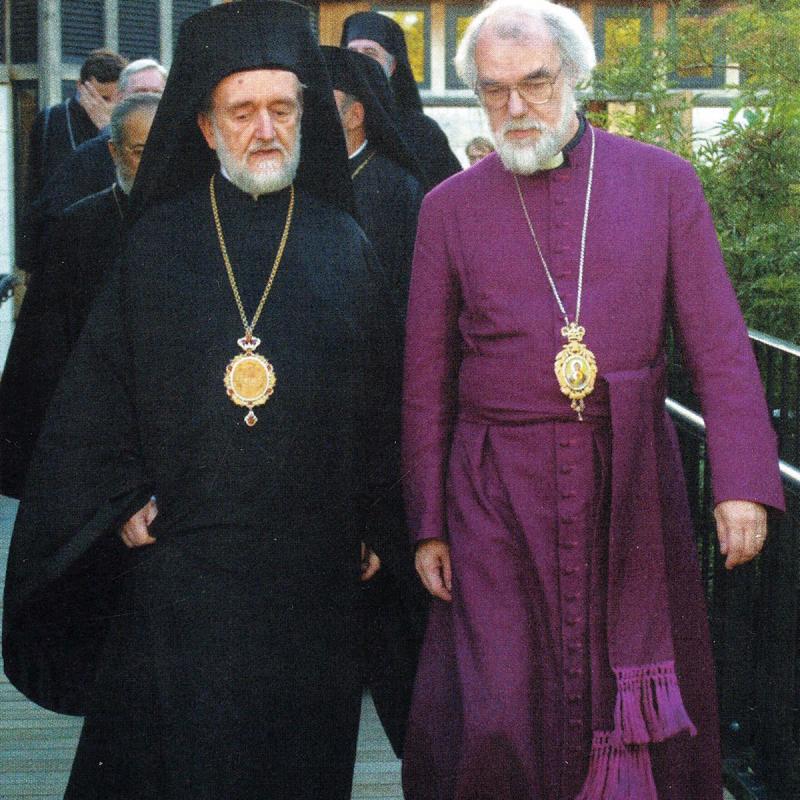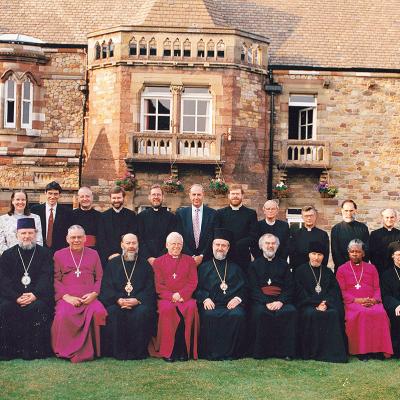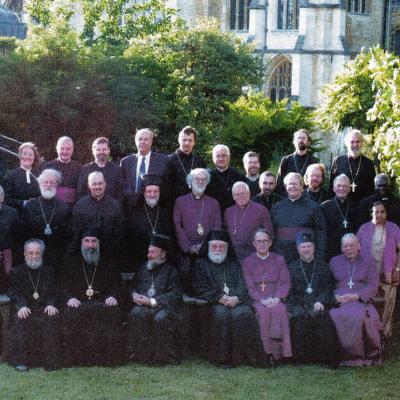Among contemporary Orthodox theologians, Metropolitan John of Pergamon stands out as one of the few who successfully promoted Orthodox theology on a global scale and left a significant imprint on the theological discourse of Western Christian denominations. His ecclesiology, rooted in meticulous research of biblical and patristic sources from the early Church, profoundly influenced the development of ecclesiological concepts and related positions in both bilateral and multilateral theological dialogues. His impact is particularly evident in bilateral dialogues with Old Catholics, Anglicans, and notably with Roman Catholics, as well as in multilateral theological dialogues within the World Council of Churches, where his ecclesiological ideas left a lasting mark.
Since 1986, when Zizioulas was finally elected as Metropolitan of Pergamon (Ecumenical Patriarchate), he deeply engaged in various ecclesiastical activities related to the bilateral official dialogues of the Orthodox Church with the Anglican and the Roman Catholic churches.
This responsibility was assigned to Zizioulas in January 1988, following a decision of the Holy Synod of the Ecumenical Patriarchate. His main task as the Orthodox president of this theological dialogue was drafting the Commission’s theological studies, which include the problem of Ecclesiology in its relationship with the doctrine of the Holy Trinity, Christology, and Pneumatology. Under his presidency, suggestions of Orthodox and Anglican theologians on these subjects have been drawn up and discussed, including his personal recommendations. It should be noted that apart from the Orthodox, prominent Anglican theologians from many parts of the world participate in this committee.
As the Chairman of the bilateral dialogue with the Anglican Church in 1988, Metropolitan John redirected the discussions towards a more theological focus. He emphasized topics like ecclesiology’s connection to the doctrine of the Holy Trinity, the relationship between Christology and Pneumatology, and how these concepts related to the Church’s structure. The resulting official documents from these dialogues, including the Moscow Agreed Statement in 1976, the Dublin Agreed Statement in 1984, and ultimately the Cyprus Agreed Statement in 2006, prominently reflected Zizioulas’ ecclesiological perspective, particularly his views on primacy and synodality within a Trinitarian and Eucharistic framework.
***
A notable turning point occurred when John Zizioulas actively joined the efforts of the British Council of Churches Commission on Trinitarian Doctrine, an initiative initially proposed by the late Metropolitan Anthony of Sourozh to commemorate the 1600th Anniversary of the Council of Constantinople in 381. Interestingly, at the outset, John Zizioulas, who was then a layman and a Professor at the University of Glasgow, was nominated to the Commission not by the Greek Orthodox community but by the Russian Archdiocese. However, as the Commission concluded its work, he had already become the Metropolitan of Pergamon and emerged as one of the primary representatives of the Ecumenical Patriarchate, notably on ecological concerns.
The accomplishments of the BCC Commission on Trinitarian Doctrine serve as a testament to the vitality of living ecumenism. Metropolitan John gradually but effectively guided many Protestant participants toward a positive appreciation of the Trinitarian teachings within the Eastern Christian tradition. This transformation highlights the dynamic nature of Orthodoxy and how circumstances can evolve rapidly, even within seemingly unchanging traditions.
The BCC Study Commission on “Trinitarian Doctrine Today” conducted ten meetings from 1983 to 1988, gathering eighteen theologians representing diverse Christian traditions. Among these theologians, John Zizioulas made a notable and substantive contribution, as evident in the commission’s final report, study guide, and published papers. His significant impact is underscored by the commission’s adoption of key questions he posed and the incorporation of his comprehensive theological vision into the final report. This highlights the widespread acceptance and credibility of Zizioulas’ theological perspective across various denominations. His emphasis on the centrality of the doctrine of the triune God, rooted in the teachings of the Cappadocian Fathers, resonated deeply with this diverse group of Christian theologians in Britain. Their six-year engagement with this crucial theological topic allowed for a thorough evaluation of emerging principles and conclusions, with consideration of their potential pastoral implications for the broader Church.
In contemplating his life in Great Britain, John Zizioulas once expressed, “My service to the Theological Dialogue between Anglicans and Orthodox as a co-chairperson of the Commission for about 17 years, and all these experiences, including being a professor in Edinburgh and Glasgow, have deeply rooted the sense that, in a profound way, I belong to this country.”





